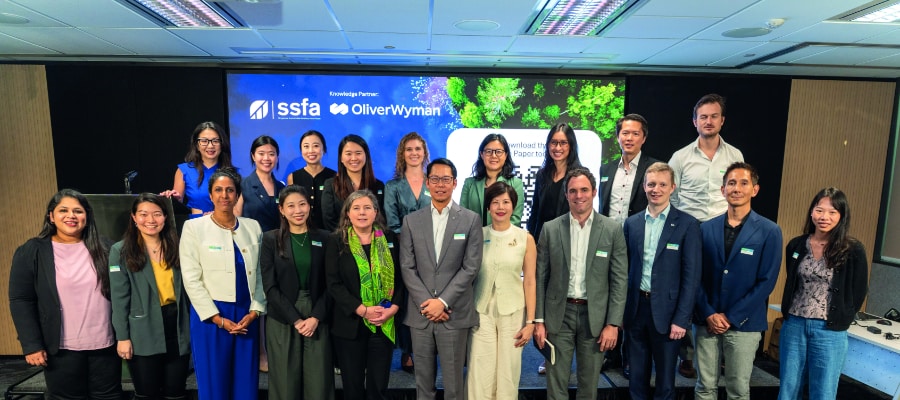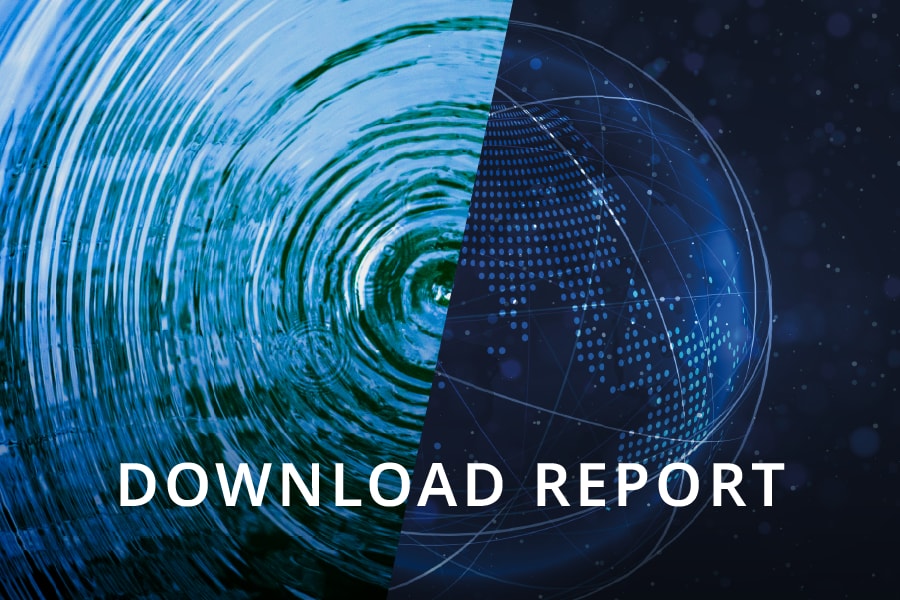Driving Partnerships for Change
In a world facing interconnected crises, collaboration is crucial for finding comprehensive solutions to address issues like climate change, ecosystem degradation, and social disparities.
Over the past months, the perception of increasing global instability, driven by political tensions and economic uncertainties, has become more prevalent. The fading willingness to find common solutions to global challenges threatens to slow down progress on critical issues such as climate change.
As a small, low-lying city-state, Singapore is particularly vulnerable to the impact of climate change. At the same time, operating from one of the world’s most open economies, Singapore businesses have an intrinsic interest in multilateral, rules-based solutions to global issues.
With this in mind, Temasek continues to actively engage and participate in a wide range of local, regional, and global initiatives to advance industry standards and best practices, catalyse solutions, and shape new markets.
Promoting Long-Term Thinking and Industry Best Practices
As a long-term oriented investor, we advocate for market and industry practices that encourage long-term value creation. Our participation in global platforms, such as the Focusing Capital on the Long Term initiative and the World Economic Forum, allows us to engage in multi-stakeholder dialogues on the solutions required to enable broader system changes towards a sustainable and prosperous economy.
We also contribute to advancing industry frameworks and practices domestically through our active participation as a convening member of the Singapore Sustainable Finance Association (SSFA).

SSFA launches white paper on financing natural capital in April 2025, with Temasek among some of the contributors.
Advancing Capital Mobilisation
Countries across the world face a significant shortfall in climate financing. With public finances under strain, the conversation about how the vast potential of private capital can be more effectively unlocked to accelerate climate action has become critical.
Through our participation in the World Bank Group Private Sector Investment Lab, our engagements with the Glasgow Financial Alliance for Net Zero, and our collaboration in Financing Asia’s Transition Partnership (FAST-P), we are actively contributing to finding solutions that address existing barriers to private sector investment in emerging markets and developing economies, particularly in Asia.
The energy transition also gives rise to new industries and markets, such as hydrogen and carbon markets. We participate in relevant platforms such as the Hydrogen Council and the Integrity Council for the Voluntary Carbon Market to stay abreast of developments, contribute our perspective, and connect with stakeholders along the value chain to identify opportunities to accelerate and scale solutions required on our journey to decarbonise our economies.
Advocating for Globally Harmonised Disclosures
Sustainability factors have become an integral part of investment decision making. We support the call for companies to provide high-quality, globally comparable information on sustainability-related risks and opportunities. We also see the need to address a fragmented landscape of voluntary, sustainability-related standards and requirements that add cost, complexity, and risk to both companies and investors.
Against this backdrop, we continue to support efforts aimed at the harmonisation and advancement of sustainability disclosure standards. We do this through our participation in the Investor Advisory Group of the International Sustainability Standards Board as well as our support of the climate reporting proposals by the Accounting and Corporate Regulatory Authority and Singapore Exchange Regulation in Singapore.
Beyond Temasek’s participation in aforementioned initiatives, our staff also advance sustainability leadership in their individual capacities, through participation in sustainability-related committees and working groups in various industry associations and professional bodies such as the Singapore Institute of Directors, the Institute of Singapore Chartered Accountants, the Singapore Venture & Private Capital Association, the International Institute for the Unification of Private Law, and the International Swaps and Derivatives Association.
Accelerating Sustainability Innovations in the Region
With Asia accounting for more than half of global emissions, accelerating the region’s transition through innovation is critical in achieving global climate targets. New technologies are needed to reduce the financial and economic barriers associated with decarbonisation, and more needs to be done to cultivate talent and develop key capabilities in the region.
Our efforts to nurture researchers and innovators in the region alongside strategic and ecosystem partners, with the aim of fostering a pipeline of potentially scalable innovations, are multifold.
One such partnership is Breakthrough Energy Fellows — Southeast Asia, a tripartite climate technology acceleration programme set up alongside Breakthrough Energy (BE), the climate organisation founded by Bill Gates, and Enterprise Singapore. The first two Southeast Asia Fellows teams have since been awarded for their projects: one is developing a new catalyst to convert biogas to methanol, targeting application in the maritime industry; while another aims to reduce dependence on mining by extracting raw materials from recycled batteries with their electro-metallurgical refining technology.
Another partnership is Singapore Climate Ventures, a venture exploration education programme organised in collaboration with Nanyang Technological University, National University of Singapore (NUS), and BE. Through mentorship and classes, the programme equips participants with essential skills to take their climate innovations from lab to market, through diverse projects in areas such as green hydrogen and lithium-sulfur battery technology.
With hydrogen emerging as a critical solution for global decarbonisation and as a potential key pillar in Singapore’s energy transition, the research undertaken by the Centre for Hydrogen Innovations (CHI) at NUS is important for enabling the deployment of hydrogen at scale, and in a cost-effective manner. CHI was first established as a virtual centre in July 2022 with an investment of S$25 million, including a S$15 million endowed gift from Temasek’s community gifts and additional funding by NUS and the Singapore Government. In July 2024, CHI launched an advance research facility as its flagship innovation hub, spanning over 600 square metres and furnished with state-of-the-art research equipment . Over the past two years, CHI has provided more than S$4.2 million in grants to support 17 innovative projects in hydrogen-related research.


